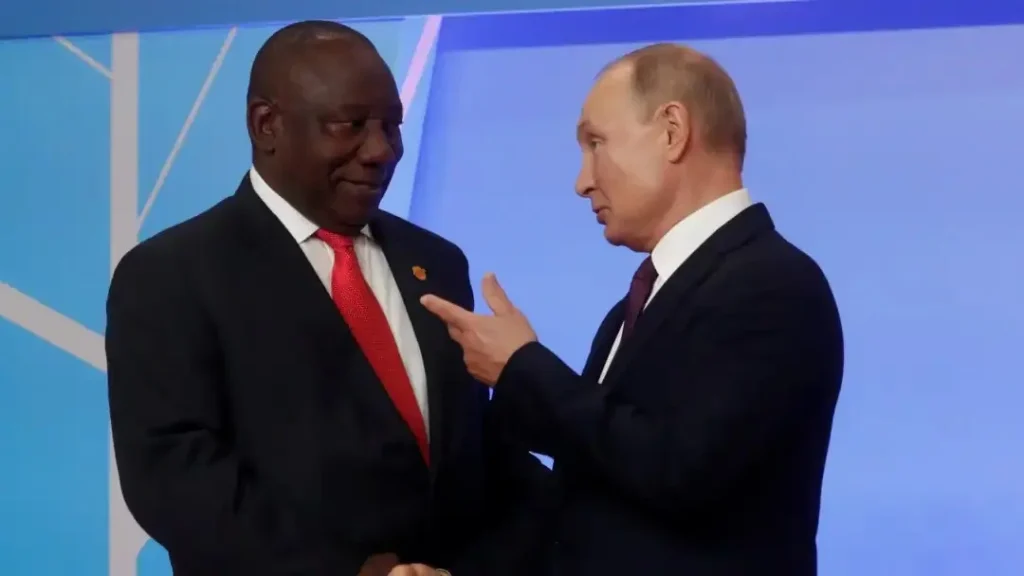In March 2022, South Africa faced scrutiny for its refusal to condemn Russia’s invasion of Ukraine, abstaining from two UN General Assembly resolutions calling for a ceasefire and humanitarian aid. “Pretoria says it would rather be neutral and allow negotiations to end the conflict,” per AFP, with its sponsored resolution for Ukrainian aid omitting Russia’s role, which was rejected. South Africa was among 17 African countries abstaining on a March 2 resolution, joined by 35 globally, per UN records, reflecting its policy of non-alignment.
Ramaphosa’s Position and NATO Criticism
President Cyril Ramaphosa, a seasoned mediator, defended South Africa’s stance, stating, “The war could have been avoided if NATO had heeded warnings… that its eastward expansion would lead to greater instability,” in a March 17 parliamentary address. Yet, he added, “We cannot condone the use of force or violation of international law,” balancing criticism of NATO with rejection of aggression. This duality sparked domestic debates, with critics like journalist Peter Fabricius warning of a “diplomatic egg-dance” risking South Africa’s global standing.
Domestic and Opposition Reactions
The African National Congress (ANC) government’s position aligned with the radical Economic Freedom Fighters (EFF), whose leader Julius Malema declared, “We are with Russia,” citing Soviet support during apartheid. “We will never denounce Russia,” Malema vowed at a human rights rally, per AFP. Former President Jacob Zuma echoed this, calling Russia’s invasion “justifiable” and Putin a “man of peace,” per a statement from his office. Conversely, Democratic Alliance (DA) leader John Steenhuisen condemned Pretoria’s “cowardly and immoral position,” with Cape Town’s DA-led government illuminating City Hall in Ukraine’s colors in solidarity.
Historical Ties and BRICS Influence
South Africa’s stance reflected historical ties to Russia, rooted in Soviet support for the ANC during apartheid. “The Kremlin and many African countries have strong… ties dating back to the 1960s Cold War,” per AFP. As a BRICS member, South Africa valued Russia’s role, with Zuma noting BRICS as a counter to Western “bullies.” However, Anglican Bishop Thabo Makgoba criticized the government’s “silence on the horrific bombing of civilians,” questioning its “ubuntu” (humanity). Analyst Jeremy Seekings called it “extraordinary” for a democratic South Africa to defend Russian imperialism.
Economic and Diplomatic Implications
South Africa mitigated economic fallout, importing oil from Saudi Arabia, Nigeria, and Angola, and citing a strong 2021 wheat harvest to ease shortage fears. “Ordinary people are already reeling from a hike in fuel prices,” per AFP, with further increases looming. Chidochashe Chere argued, “It’s only wise for South Africa to choose its battles,” to maintain ties with both Russia and Ukraine. However, Fabricius warned that South Africa’s “influence” risked declining compared to Kenya or Nigeria, with 2022 UN votes showing only 24 African states condemning Russia, per Al Jazeera, highlighting a divided continent.






